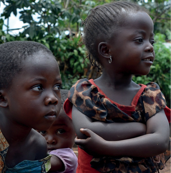The psychological well-being of aid workers in humanitarian crisis
Résumé
This presentation addresses the psychological well-being of aid workers engaged in the endeavour to alleviate the suffering of survivors of sexual violence in humanitarian crisis. However gratifying such effort may be, it also puts great strain on the professionals and volunteers involved.
First, working in crisis situations is oftentimes dangerous, with staff running the risk of being attacked, kidnapped, physically harmed, sexually violated or murdered (e.g., Connorton et al, 2012). In addition, medical and psychological aid workers face the risk of suffering from traumatic stress due to witnessing (the consequences of) atrocious events. Organizational, living or team conditions may also act as chronic stressors.
Scientific studies have shown that chronic stress and traumatic event exposure among humanitarian workers are related to elevated prevalence rates of mental health problems. PTSD, depression, anxiety, burn-out, and alcohol abuse are most common (e.g., Lopes-Cardozo et al., 2012).
Such problems may have serious implications for the individual’s personal and professional life. Humanitarian and medical organizations may promote the well-being of their staff and sustain organizational effectiveness and efficiency through creating an open and supportive organizational culture (Strohmeier et al., 2019; Antares Foundation, 2012).
The presenter will discuss research findings on (predictors of) the mental health of humanitarian aid workers, and then address strategies to promote resilience on organizational, team and individual level.

